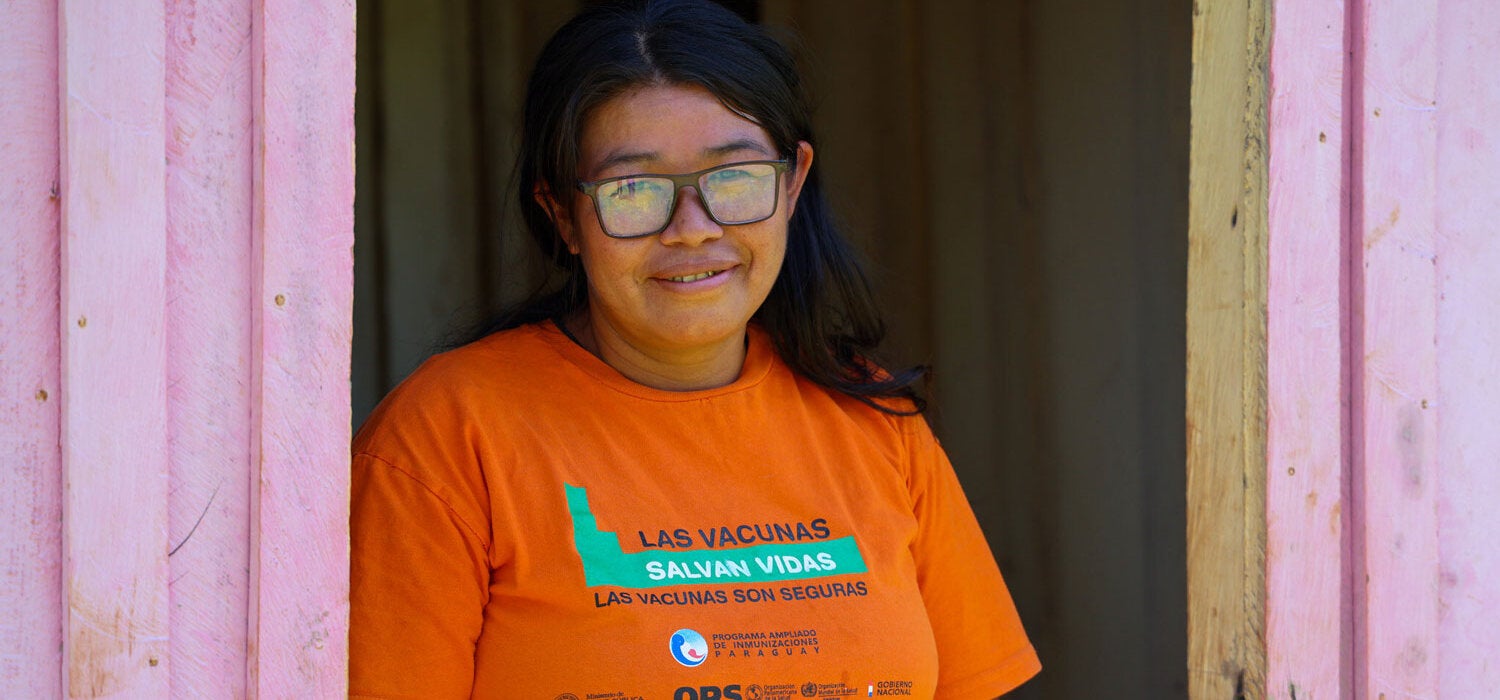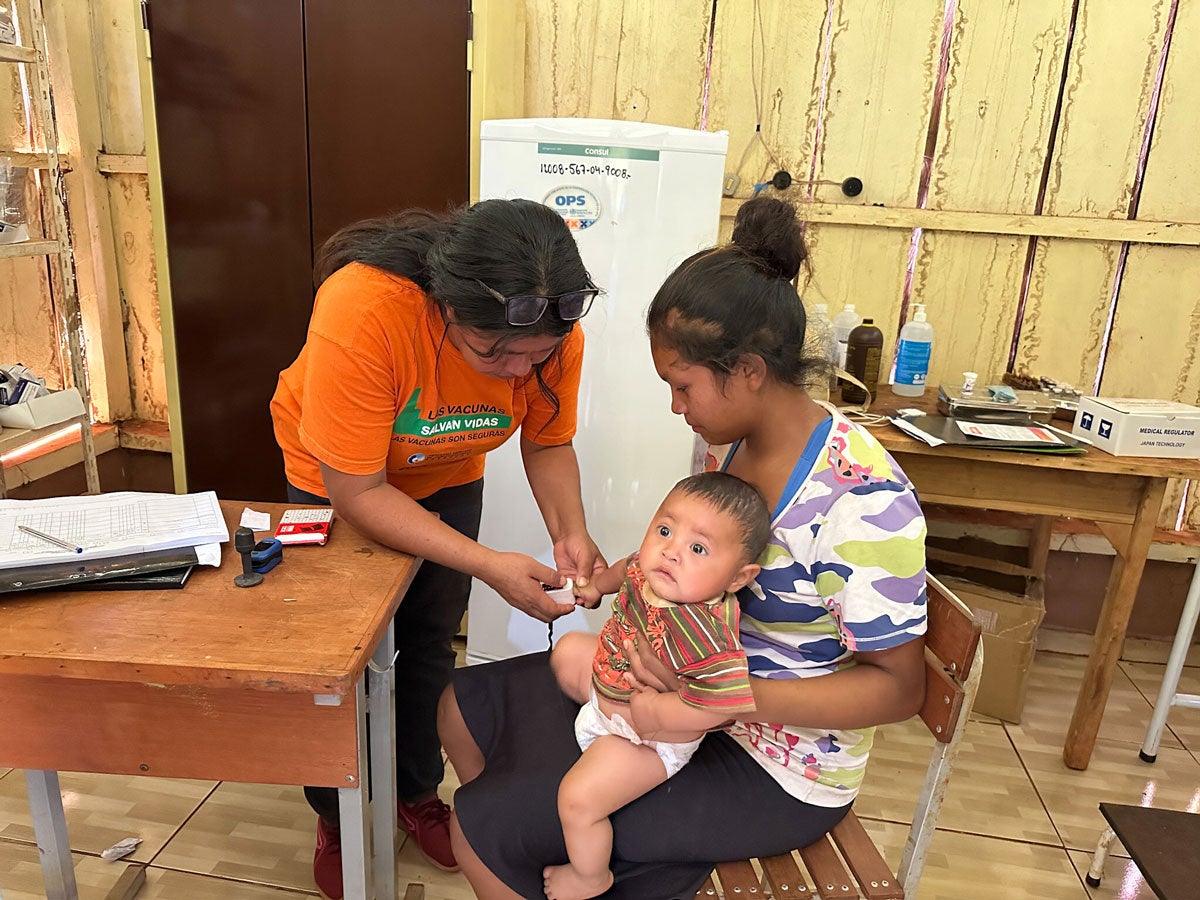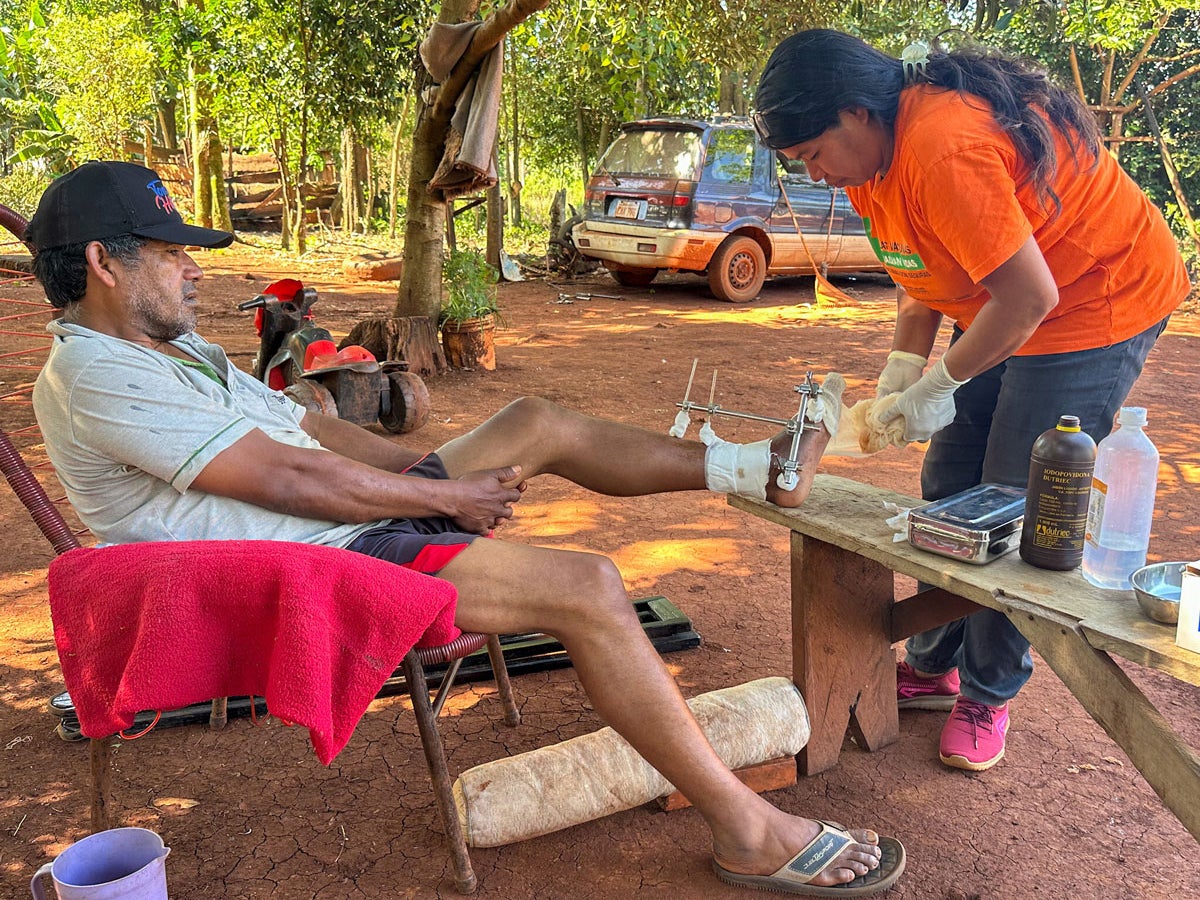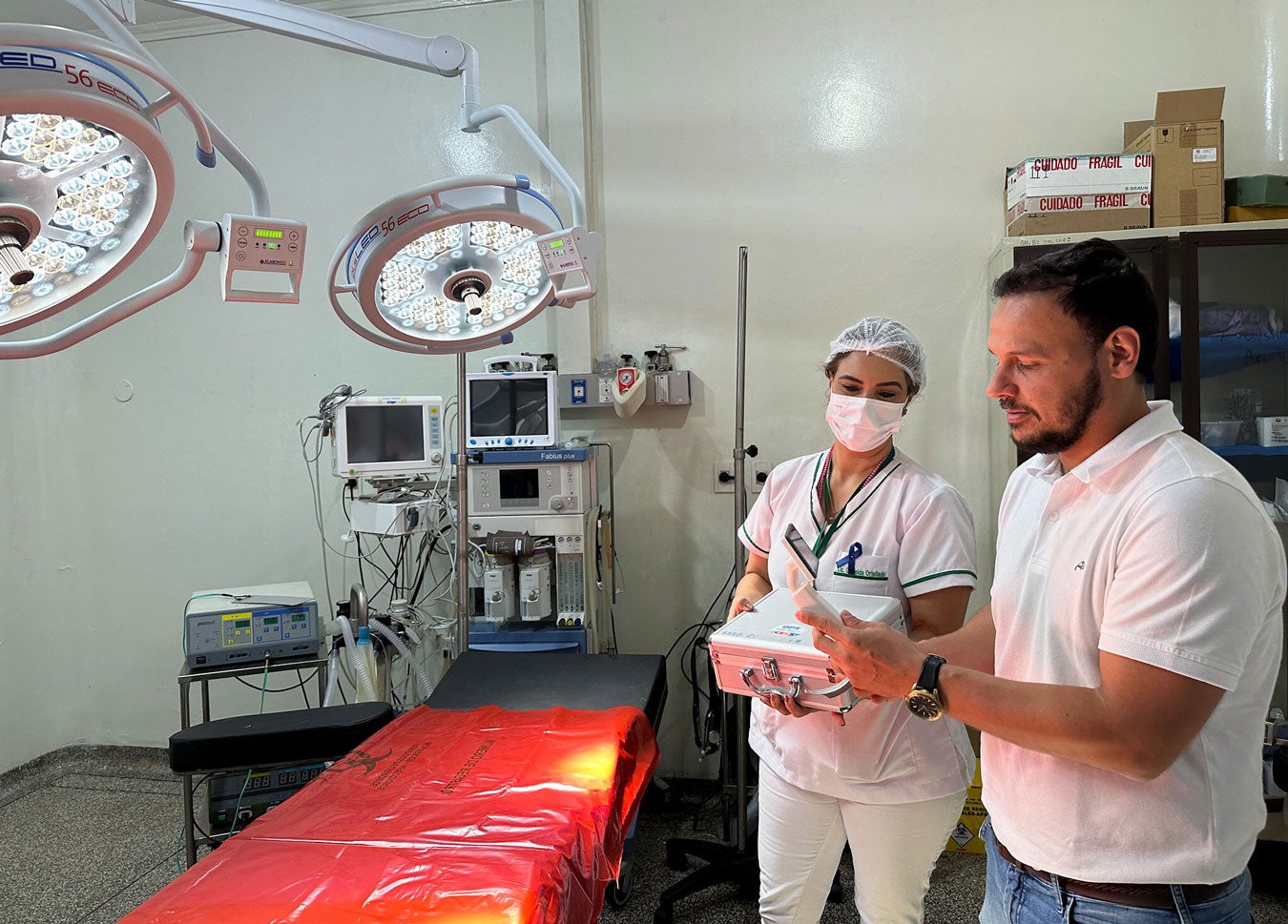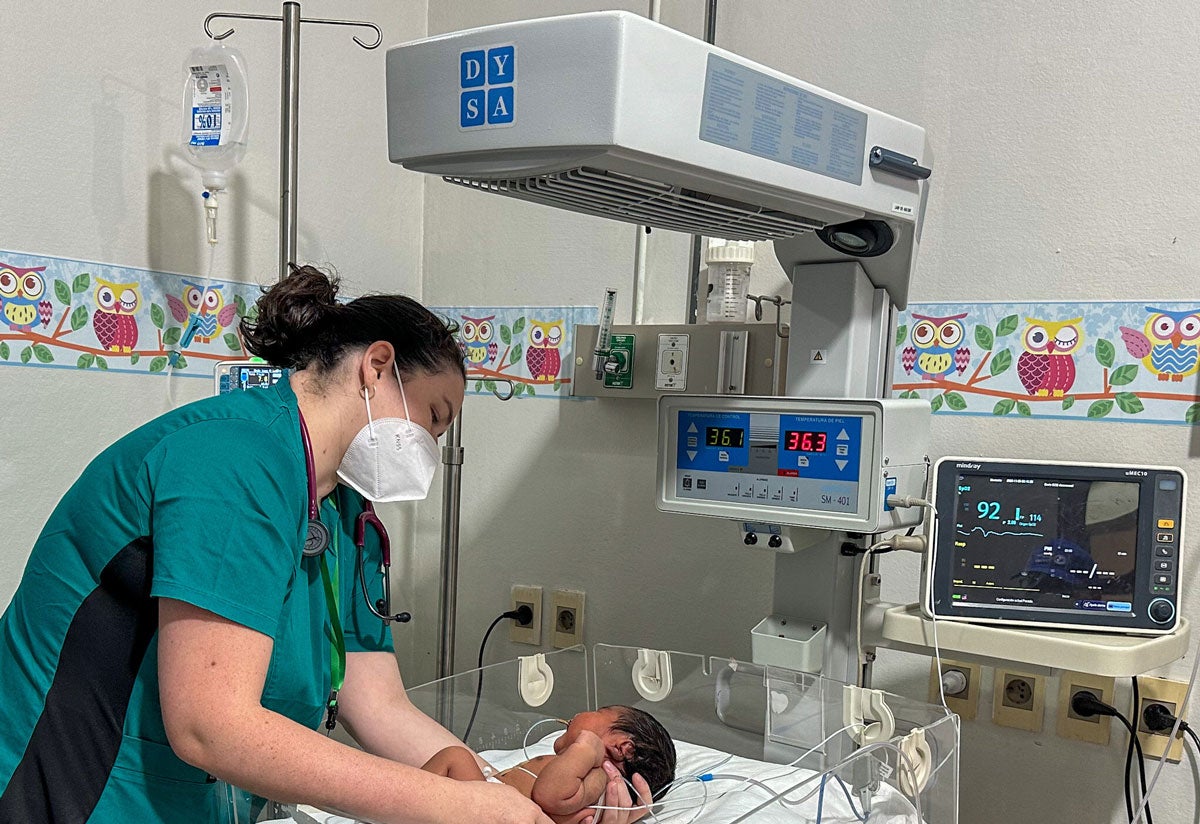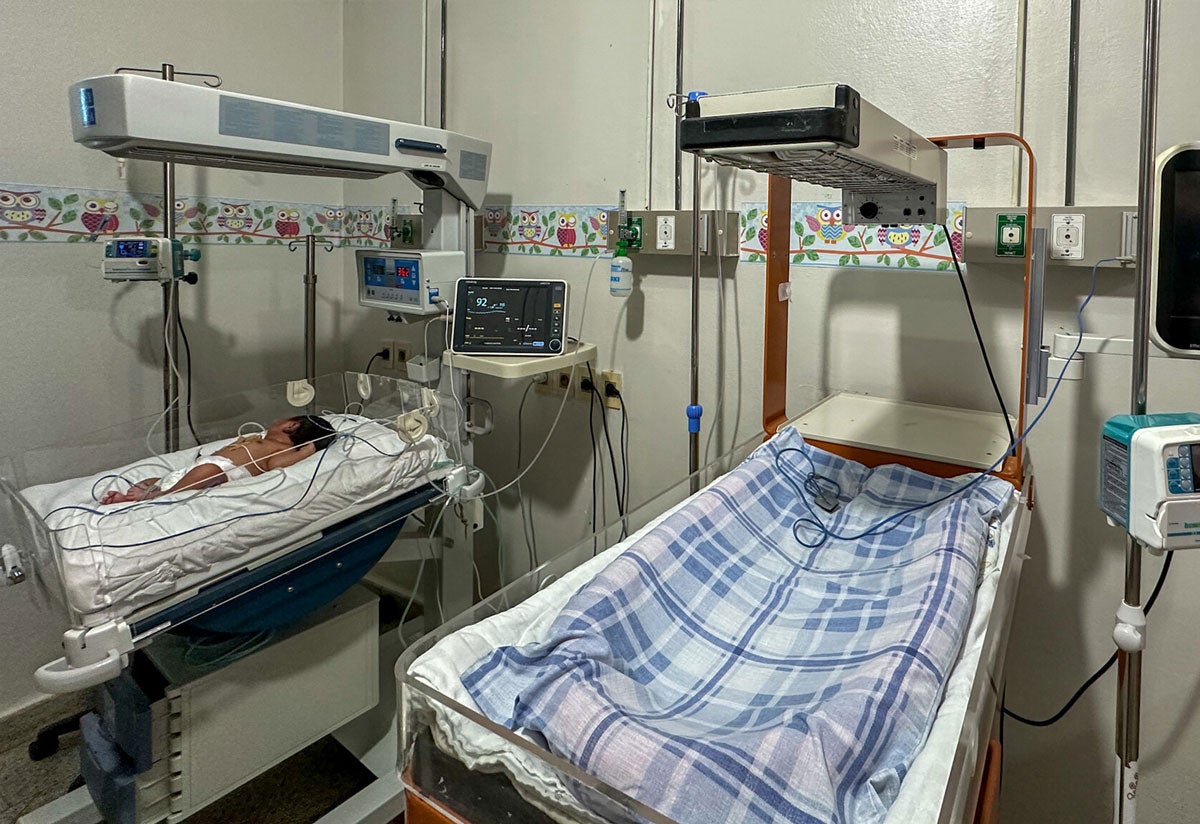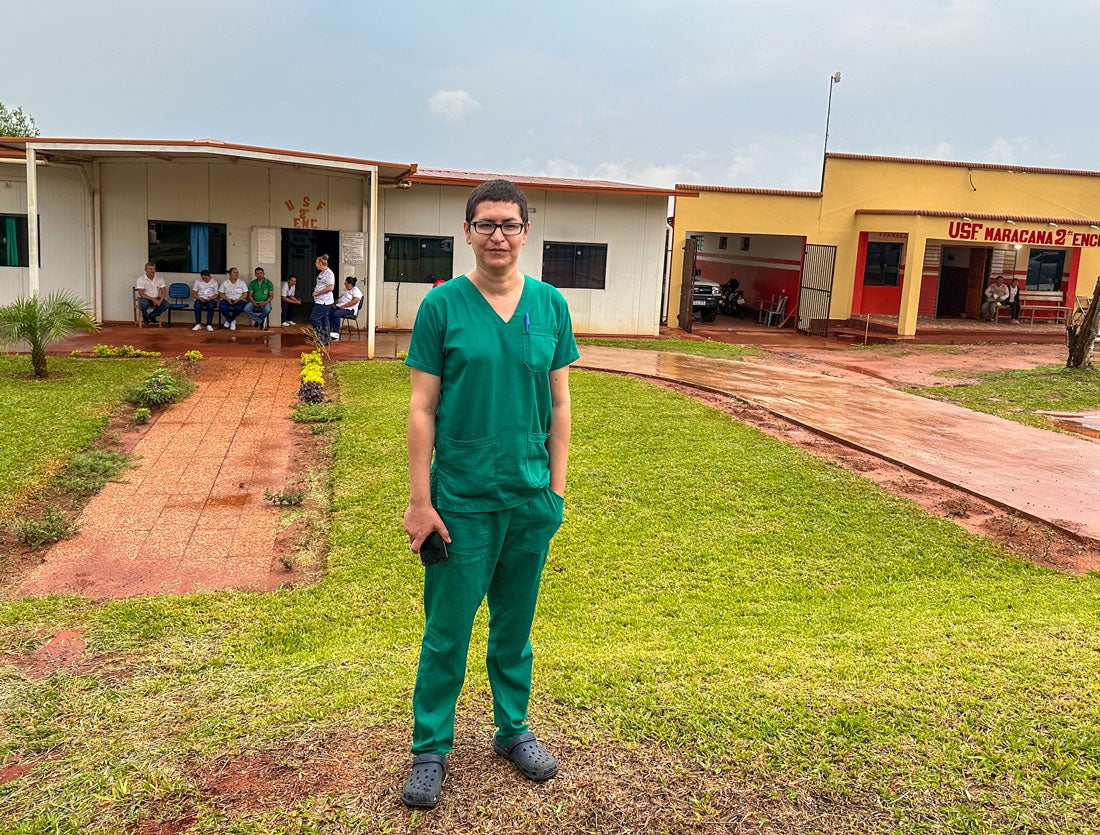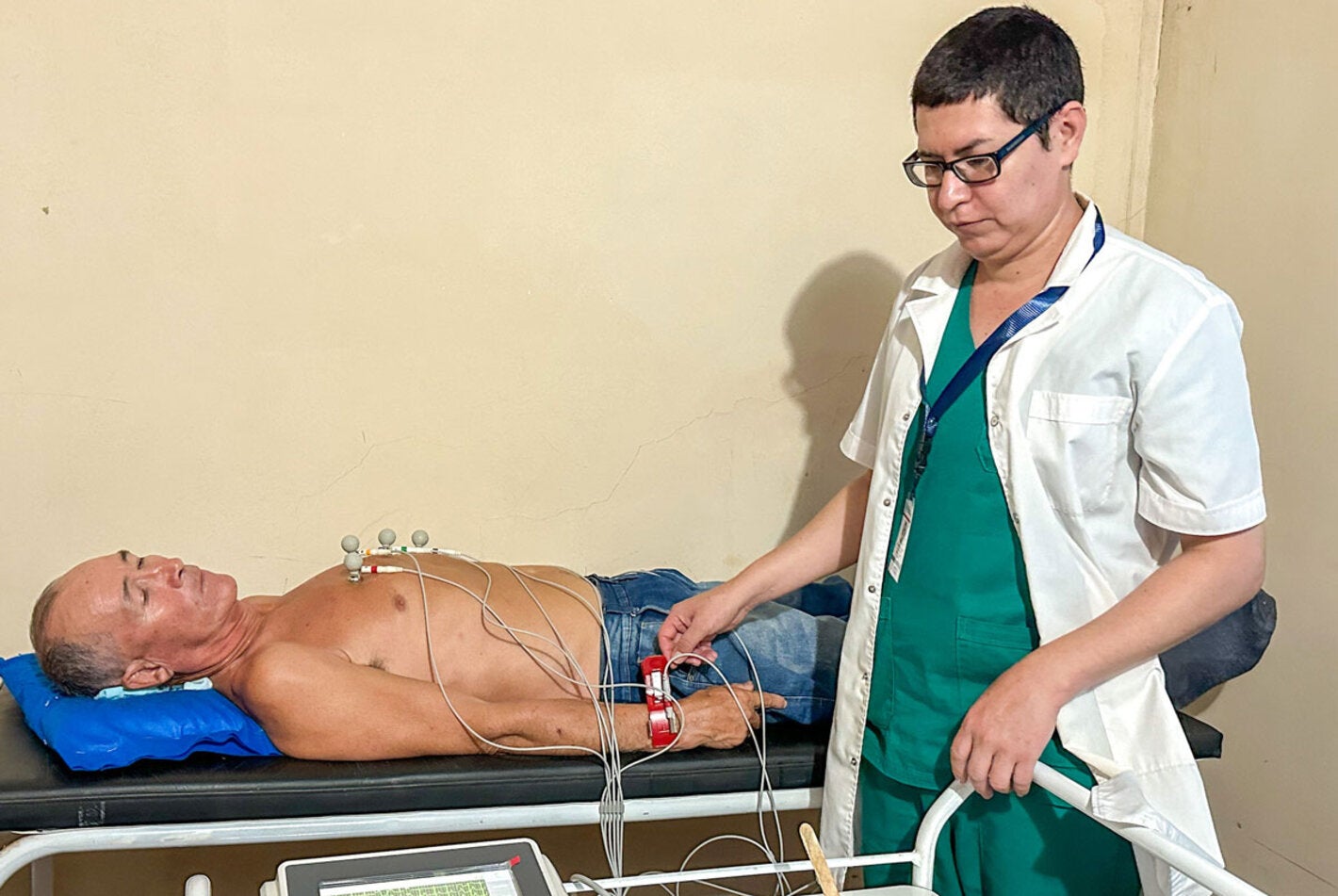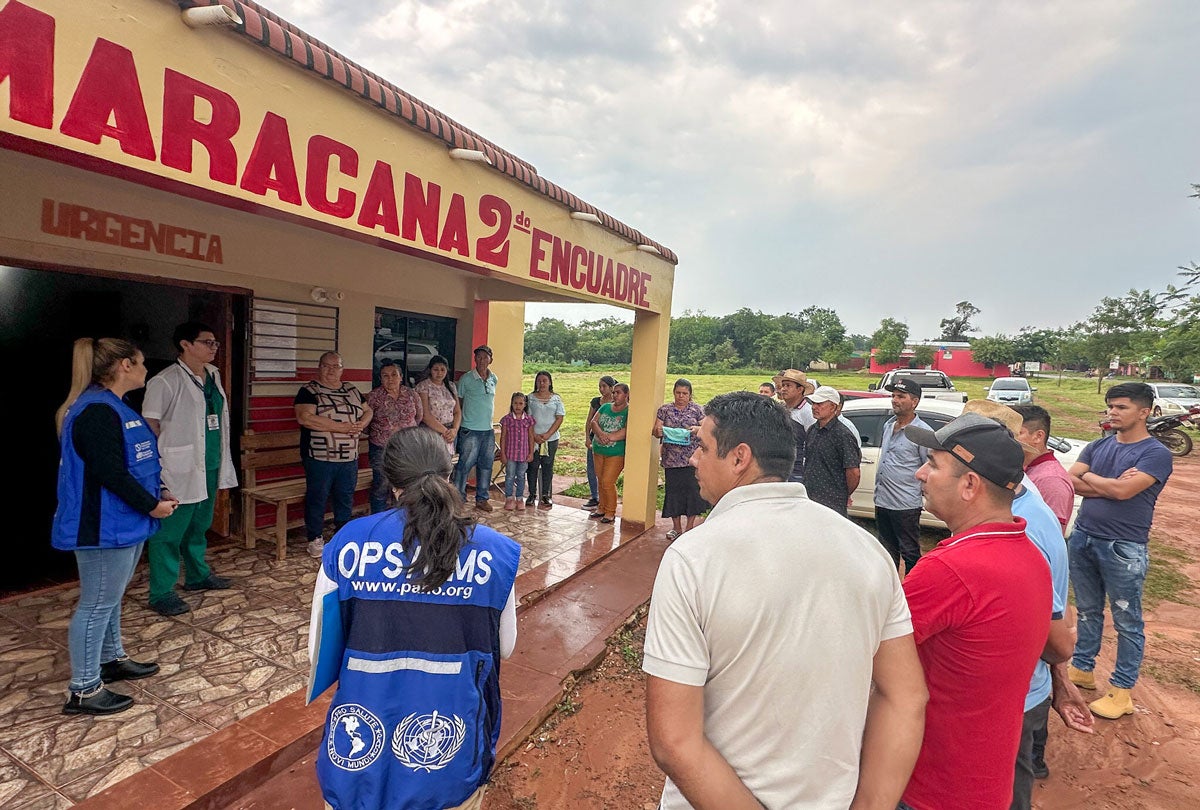Natalia Saucedo provides medical care and makes home visits
More equipment, more health
125 kilometers from the health post where Natalia Saucedo works, the Regional Hospital of Salto del Guairá, the capital of the department, was strengthened with furniture and medical devices, such as refrigerators for storing and transporting vaccines, scales for weighing babies, incubators for newborns, as well as adult and pediatric crash carts.
For its medical director, Nicolás Ocampo, these donations were crucial, especially to refurbish the hospital's second operating room, which has improved the quality of surgery, reduced procedure times and increased the capacity of the teams to attend more patients.
A two-and-a-half-hour drive away is the Curuguaty District Hospital, the other medical center in the department. In 2021, in response to COVID-19, the hospital received a medical oxygen plant from PAHO, which helped ensure oxygen for patients both in health centers and at home during the pandemic.
"The technical cooperation marked a before and after in services," says Dr. Angie Duarte, director of the hospital. This change, she says, was especially noticeable in areas such as neonatology and in the operating room, which was refurbished from scratch after having been closed for six years.
The operating room, which was blackened by a previous fire, now looks radiant and contains everything necessary to perform surgeries, from an operating table, lights and surgical instruments to vital sign monitors and an anesthesia device. "Having new and modern equipment makes it possible for us to provide quality care to patients," Duarte emphasizes.
New neonatology equipment has also improved care for premature babies and allows Dr. Jennifer Heyn and her team to detect vision problems, monitor airways and maintain the newborns' body temperature. This gives them greater decision-making capacity, as well as safety and peace of mind, as they previously had to be more vigilant, she says.

